Administrative procedures training
Administrative Procedures Training refers to a structured learning program designed to equip individuals—typically administrative assistants, office managers, or entry-level employees—with the knowledge and skills needed to carry out daily office tasks efficiently and in compliance with organizational standards. This training often covers document management, scheduling, communication, record keeping, and organizational protocols.
What Is Administrative Procedures Training?
Administrative Procedures Training is a form of workplace education that focuses on teaching the standard operating procedures (SOPs) used in office environments. These procedures may include filing systems, managing correspondence, handling sensitive information, following compliance protocols, and using office technologies such as word processors, spreadsheets, and scheduling tools. The goal is to ensure consistency, professionalism, and efficiency in administrative work.
Why Is Administrative Procedures Training Important?
This training is crucial because it helps organizations maintain order, minimize errors, and enhance productivity. Well-trained administrative personnel can manage tasks more confidently, support multiple departments, and ensure that operations run smoothly. It also helps new employees adapt quickly and align with company expectations, reducing the time needed for supervision and correction.
Overview
This unit standard is for all persons involved in administration in commercial or non-commercial organisations and who have the responsibility of developing administrative procedures to make the administrative component of the organisation more effective and efficient and so aid the organisation to attain its mission, vision and objectives.
Description
This course on ‘Develop Administrative Procedures in a Selected Organisation’ is designed for individuals involved in administration within commercial or non-commercial organisations. Participants will learn to develop administrative procedures that enhance the effectiveness and efficiency of the administrative component, thereby aiding the organisation in achieving its mission, vision, and objectives.
Course Content
- A list of all administrative systems required in a selected business environment is compiled including client-filing systems, staff administrative systems, and business systems
- The elements and usage of each system are described in relation to the company and legal requirements
- Resources such as staff, information technology, office space, and management requirements for the development of these administrative systems are listed, and ways of finding these resources are identified in a specific business institution
- The administrative requirements are identified to meet the specific needs of a selected business organisation
- The identified administrative systems are developed in accordance with the organisational and legal requirements
- The administrative systems and procedures identified are presented to management and staff for approval
- Feedback is obtained from management and staff regarding the suitability of the systems on specifically designed feedback forms
- Agreed changes are made to the systems
- Administrative information, which should be kept confidential, is identified in accordance with legal, company and industry requirements and practices
- Systems are developed to keep administrative information and records confidential and maintain the secrecy of such information as required legally and by the company
- Mandates for access to confidential information are identified for administrative and other staff according to their job role
- Procedures, which are in alignment with legislative and organisational requirements, are developed for the administrative systems
- The procedure for each element of the administration system is explained to employees in line with the policies developed
- The policies and procedures are collated into a written manual in company-specific format
- Non-accredited: Short course only
- Duration: 02h 50m
- Delivery: Classroom/Online/Blended
- Access Period: 12 Months

